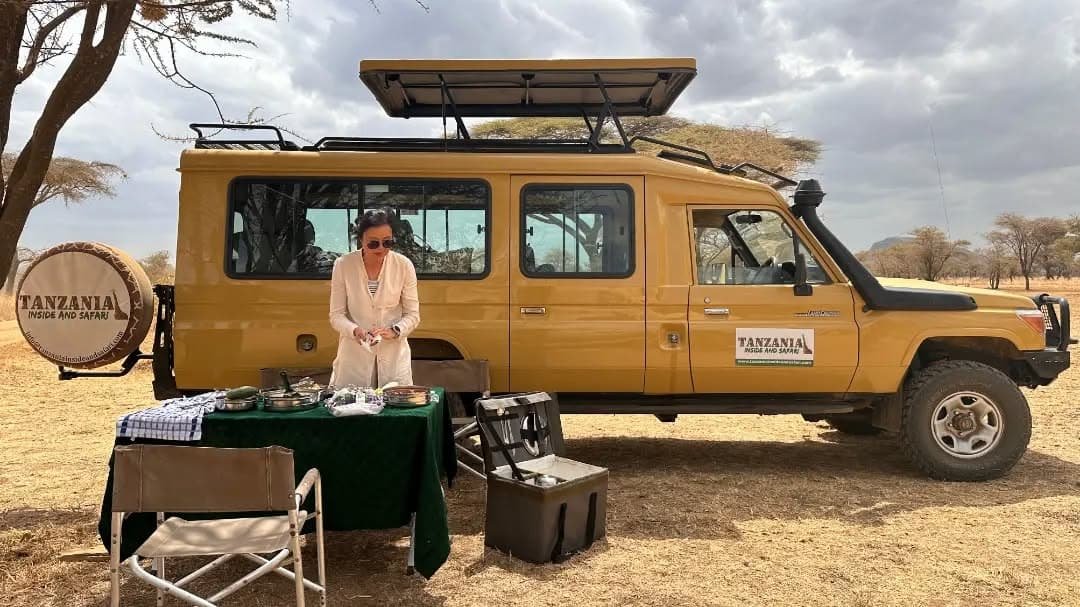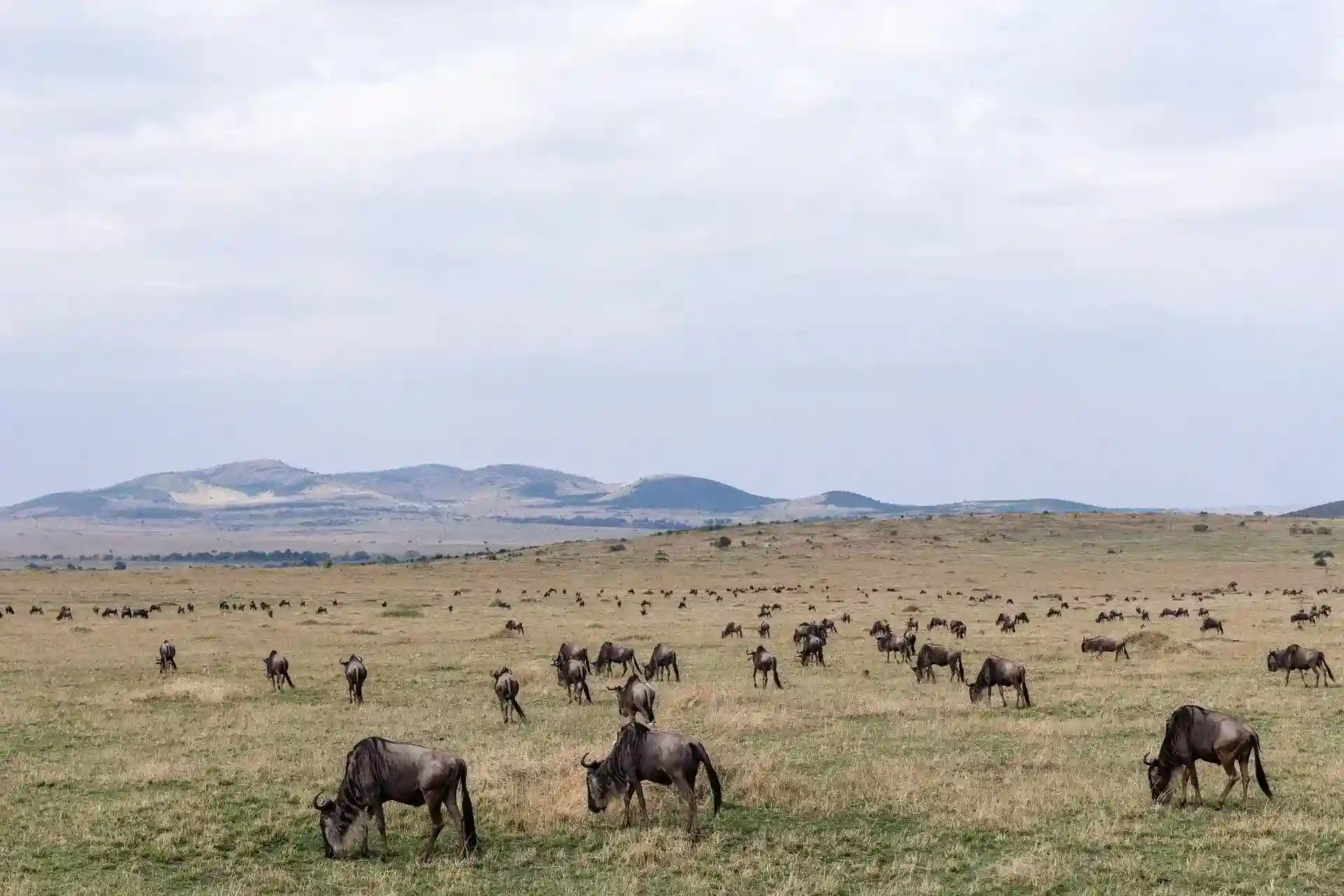Senior Safari - Gentle Adventures in Tanzania Travel Tips & Planning
Traveling in later years can be one of the most fulfilling and enriching experiences, allowing seniors to explore new cultures, revisit favorite destinations, or simply relax in beautiful surroundings. However, senior travelers have unique needs that require careful planning to ensure a smooth and enjoyable journey. From health and mobility considerations to selecting the right accommodations and activities, a well-prepared trip can make all the difference. This guide highlights essential factors to consider when planning a trip for senior travelers, ensuring both comfort and safety while making the most of their adventures.
Choosing the Right Destination
Accessibility: Destinations with well developed infrastructure, smooth roads, and convenient transportation are ideal.
Weather Considerations: Extreme heat or cold can be challenging, so mild climates are preferable.
Cultural and Historical Attractions: Museums, heritage sites, and guided city tours allow seniors to experience rich cultures without too much physical exertion.
Nature and Wildlife Safaris: National parks with guided game drives provide an excellent way to enjoy nature without excessive walking.
Cruises and Coastal Getaways: Cruises offer a relaxing way to travel, with all amenities on board. Coastal destinations with scenic views and wellness resorts are also ideal.

Health and Medical Considerations
Pre-Travel Medical Checkups: Consultation with a doctor to ensure they are fit for travel.
Vaccinations and Preventive Care: Recommended vaccinations such as flu shots, yellow fever (if required), and COVID-19 precautions.
Medications and Prescriptions: Carry sufficient medications for the trip, including extra doses in case of delays.
Access to Medical Facilities: Research hospitals and clinics available at the destination.
Travel Insurance: Opt for comprehensive insurance that covers medical emergencies, trip cancellations, and lost baggage.

Mobility and Accessibility
Senior-Friendly Transportation: Book flights with priority boarding and direct routes.
Hotel Accessibility: Choose accommodations with elevators, ramps, and minimal stairs.
Wheelchair and Mobility Aid Availability: Some destinations offer rental services for wheelchairs or mobility scooters.

Travel Insurance and Safety Precautions
Medical Coverage: Ensure it includes emergency treatments, hospital stays, and medical evacuations.
Trip Cancellation and Interruption: Covers costs in case of emergencies that prevent travel.
Lost Luggage Protection: Seniors should keep essential medications in carry-on luggage.
Personal Safety: Avoid traveling alone in unfamiliar areas at night and use safes for valuables.

Packing Essentials for Senior Travelers
Comfortable Clothing: Weather appropriate and easy-to-wear outfits.
Travel Documents: Passport, visas, insurance papers, and emergency contacts should be readily available.
Medications and First-Aid Kit: Essential for any health concerns during the trip.
Compression Socks for Long Flights: Helps reduce the risk of deep vein thrombosis (DVT).
Lightweight Luggage with Wheels: Easier to manage when moving between locations.

Transportation Considerations
Flights: Opt for airlines with senior-friendly services and request wheelchair assistance if needed.
Trains and Buses: Look for those with reserved seating and minimal steps for easy boarding.
Private Transfers: In some cases, hiring a driver can be more convenient than navigating public transport.

Accommodation Choices
Hotels with Senior-Friendly Features: Elevators, large bathrooms, and concierge services.
All-Inclusive Resorts: Minimize the need for transportation and meal planning.
Vacation Rentals: Great for extended stays with home like comfort.
Senior-Oriented Retreats: Some destinations offer resorts designed specifically for older travelers.

Diet and Nutrition While Traveling
Hydration: Carry a reusable water bottle to avoid dehydration.
Healthy Snack Options: Nuts, dried fruits, and protein bars for energy.
Avoiding Street Food Risks: Stick to reputable restaurants and cooked meals.

Activities and Excursions
Cultural Experiences: Visiting museums, historical sites, and art galleries.
Relaxation Activities: Spa treatments, yoga retreats, and wellness resorts.
Nature-Based Activities: Scenic train rides, boat cruises, and wildlife safaris.
Low-Impact Adventure: Birdwatching, fishing, or coffee tours.
Financial Planning and Budgeting
Senior Discounts: Many airlines, hotels, and attractions offer discounts for older travelers.
Pre-Booking and Budgeting: Helps prevent unexpected expenses.
Currency Exchange: Use credit cards with no foreign transaction fees.
Secure Payment Methods: Avoid carrying large amounts of cash.
Conclusion
Traveling as a senior can be a rewarding and enriching experience when planned carefully. By considering health, mobility, safety, accommodations, and financial aspects, senior travelers can enjoy a stress-free journey filled with adventure and relaxation. Whether exploring a new culture, relaxing at a beachside retreat, or enjoying a wildlife safari, the golden years are the perfect time to create unforgettable memories. With the right preparation, senior travelers can embrace the joys of travel while ensuring comfort and security throughout their journey.
















